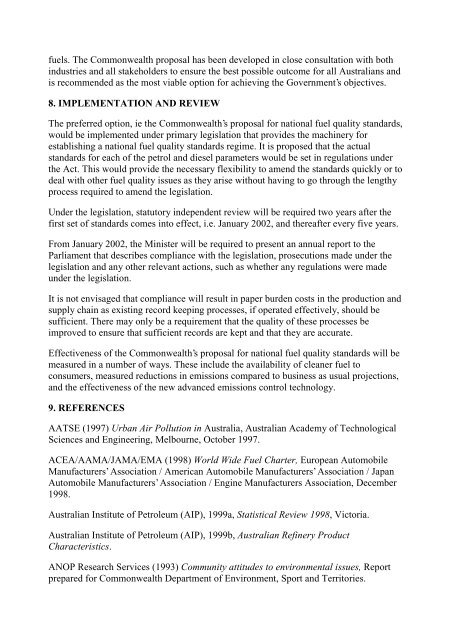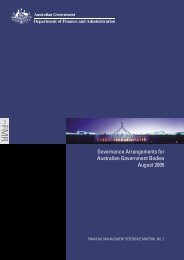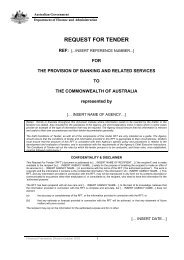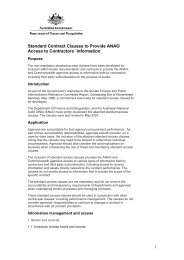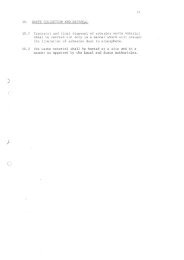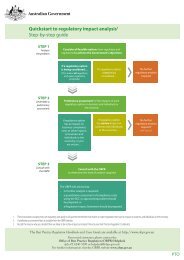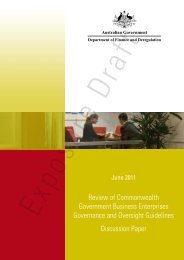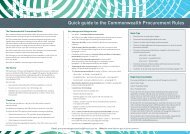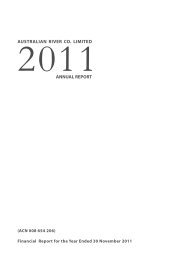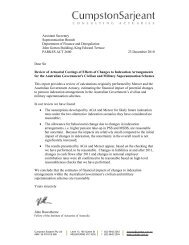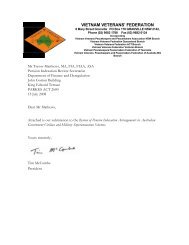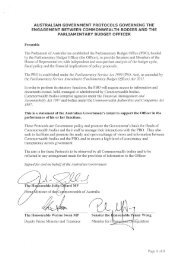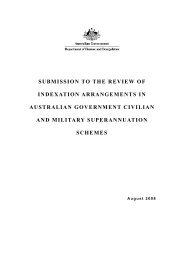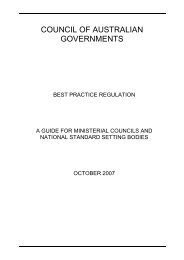National Fuel Quality Standards Regulation Impact Statement 1 ...
National Fuel Quality Standards Regulation Impact Statement 1 ...
National Fuel Quality Standards Regulation Impact Statement 1 ...
You also want an ePaper? Increase the reach of your titles
YUMPU automatically turns print PDFs into web optimized ePapers that Google loves.
fuels. The Commonwealth proposal has been developed in close consultation with both<br />
industries and all stakeholders to ensure the best possible outcome for all Australians and<br />
is recommended as the most viable option for achieving the Government’s objectives.<br />
8. IMPLEMENTATION AND REVIEW<br />
The preferred option, ie the Commonwealth’s proposal for national fuel quality standards,<br />
would be implemented under primary legislation that provides the machinery for<br />
establishing a national fuel quality standards regime. It is proposed that the actual<br />
standards for each of the petrol and diesel parameters would be set in regulations under<br />
the Act. This would provide the necessary flexibility to amend the standards quickly or to<br />
deal with other fuel quality issues as they arise without having to go through the lengthy<br />
process required to amend the legislation.<br />
Under the legislation, statutory independent review will be required two years after the<br />
first set of standards comes into effect, i.e. January 2002, and thereafter every five years.<br />
From January 2002, the Minister will be required to present an annual report to the<br />
Parliament that describes compliance with the legislation, prosecutions made under the<br />
legislation and any other relevant actions, such as whether any regulations were made<br />
under the legislation.<br />
It is not envisaged that compliance will result in paper burden costs in the production and<br />
supply chain as existing record keeping processes, if operated effectively, should be<br />
sufficient. There may only be a requirement that the quality of these processes be<br />
improved to ensure that sufficient records are kept and that they are accurate.<br />
Effectiveness of the Commonwealth’s proposal for national fuel quality standards will be<br />
measured in a number of ways. These include the availability of cleaner fuel to<br />
consumers, measured reductions in emissions compared to business as usual projections,<br />
and the effectiveness of the new advanced emissions control technology.<br />
9. REFERENCES<br />
AATSE (1997) Urban Air Pollution in Australia, Australian Academy of Technological<br />
Sciences and Engineering, Melbourne, October 1997.<br />
ACEA/AAMA/JAMA/EMA (1998) World Wide <strong>Fuel</strong> Charter, European Automobile<br />
Manufacturers’ Association / American Automobile Manufacturers’ Association / Japan<br />
Automobile Manufacturers’ Association / Engine Manufacturers Association, December<br />
1998.<br />
Australian Institute of Petroleum (AIP), 1999a, Statistical Review 1998, Victoria.<br />
Australian Institute of Petroleum (AIP), 1999b, Australian Refinery Product<br />
Characteristics.<br />
ANOP Research Services (1993) Community attitudes to environmental issues, Report<br />
prepared for Commonwealth Department of Environment, Sport and Territories.


